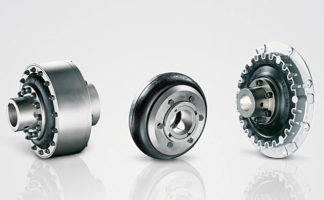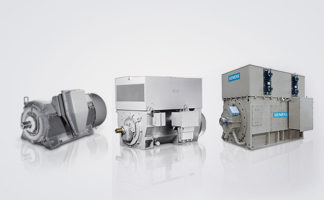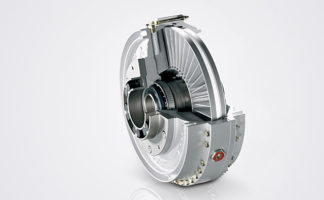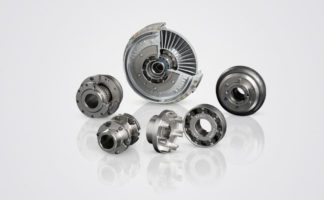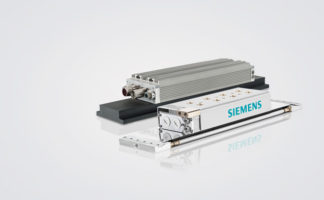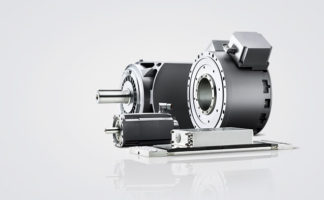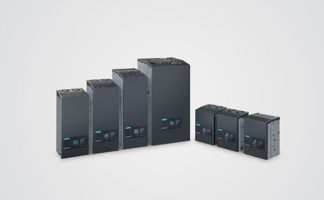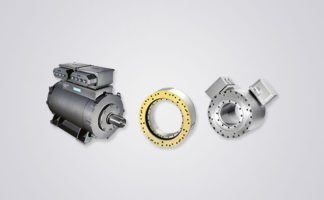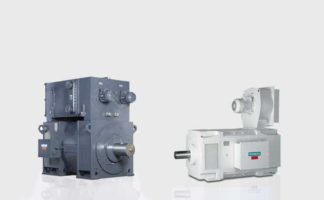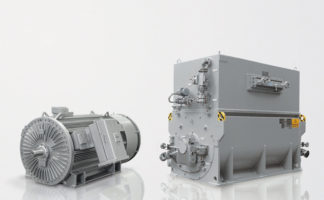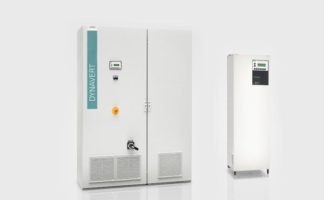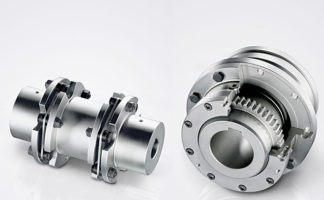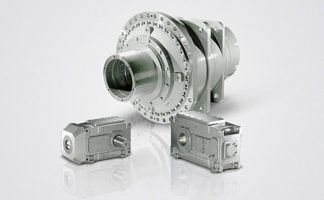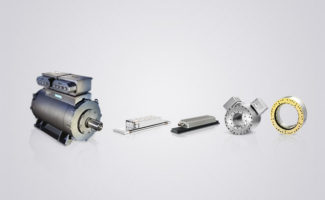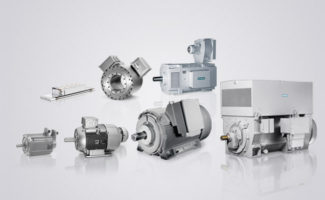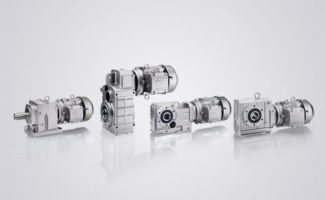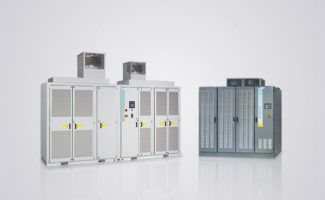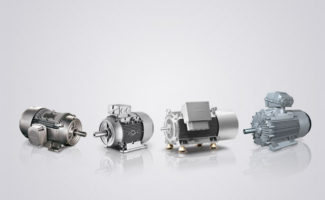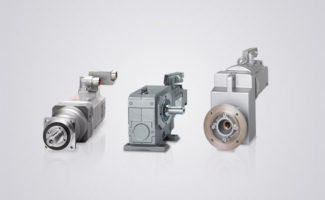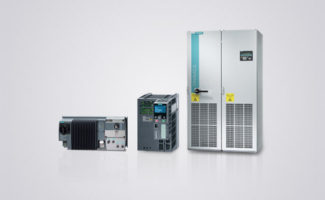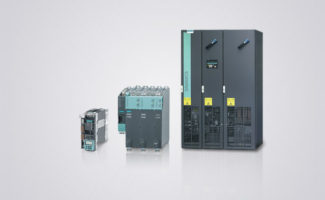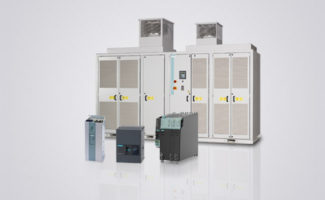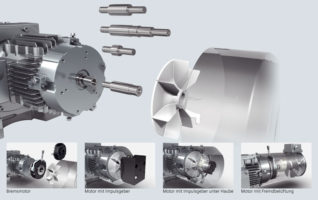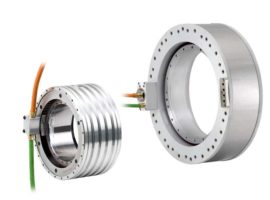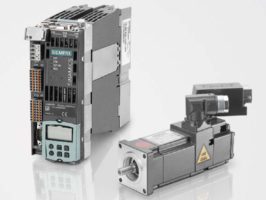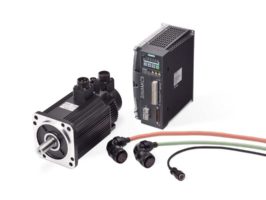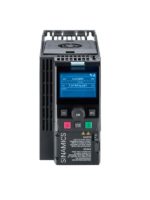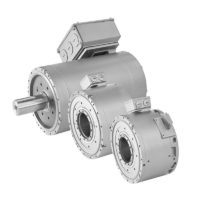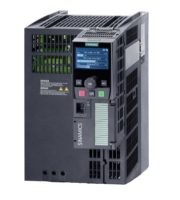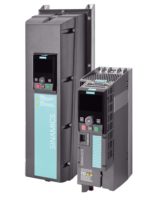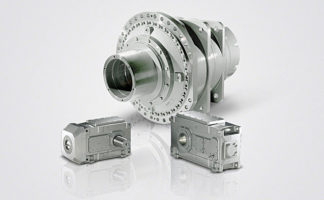
6/9
Siemens IC 10 · 2017
SIRIUS 3RW Soft Starters
3RW30, 3RW40 for Standard Applications
3RW30
General data
6
■
Overview
SIRIUS 3RW30 soft starters
The SIRIUS 3RW30 soft starters reduce the motor voltage
through variable phase control and increase it in ramp-like mode
from a selectable starting voltage up to mains voltage. During
starting, these devices limit the torque as well as the current and
prevent the shocks which arise during direct starts or wye-delta
starts. In this way, mechanical loads and mains voltage dips can
be reliably reduced.
Soft starting reduces the stress on the connected equipment
and results in lower wear and therefore longer periods of trouble-
free production. The selectable start value means that the soft
starters can be adjusted individually to the requirements of the
application in question and unlike wye-delta starters are not
restricted to two-stage starting with fixed voltage ratios.
The SIRIUS 3RW30 soft starters are characterized above all by
their small space requirements. Integrated bypass contacts
mean that no power loss has to be taken into the bargain at the
power semiconductors (thyristors) after the motor has started
up. This cuts down on heat losses, enabling a more compact
design and making external bypass circuits superfluous.
Various versions of the SIRIUS 3RW30 soft starters are available:
•
Standard version for fixed-speed three-phase motors, sizes
S00 S0, S2和S3,集成旁路接触system
•
Version for fixed-speed three-phase motors in a 22.5 mm
enclosure without bypass
Soft starters rated up to 55 kW (at 400 V) for standard
应用在三相网络是可用的. Extremely
small sizes, low power losses and simple commissioning are just
three of the many advantages of this soft starter.
Functionality
The space required by the compact SIRIUS 3RW30 soft starter
is often only about one third of that required by a contactor
assembly for wye-delta starting of comparable rating. This not
only saves space in the control cabinet and on the standard
mounting rail but also does away completely with the wiring work
needed for wye-delta starters. This is notable in particular for
higher motor ratings which are only rarely available as fully wired
solutions.
At the same time the number of cables from the starter to the
motor is reduced from six to three. Compact dimensions, short
start-up times, easy wiring and fast commissioning make
themselves felt as clear-cut cost advantages.
The bypass contacts
of these soft starters are protected during
operation by an integrated solid-state arc quenching system.
This prevents damage to the bypass contacts in the event of a
fault, e.g. brief disconnection of the control voltage, mechanical
shocks or life-related component defects on the coil operating
mechanism or main contact spring.
The series of devices comes with the "polarity balancing" control
method
, which is designed to prevent direct current components
in two-phase controlled soft starters. On two-phase controlled
soft starters the current resulting from superimposition of the two
controlled phases flows in the uncontrolled phase. This results
for physical reasons in an asymmetric distribution of the three
phase currents during the motor ramp-up. This phenomenon
cannot be influenced, but in most applications it is non-critical.
Controlling the power semiconductors results not only in this
asymmetry, however, but also in the previously mentioned direct
current components which can cause severe noise generation
on the motor at starting voltages of less than 50 %. The control
method used for these soft starters eliminates these direct
current components during the ramp-up phase and prevents the
braking torque which they can cause.
It creates a motor ramp-up that is uniform in speed, torque and
current rise, thus permitting a particularly gentle, two-phase
starting of the motors. At the same time the acoustic quality of
the starting operation comes close to the quality of a three-
phase controlled soft starter. This is made possible by the on-
going dynamic harmonizing and balancing of current half-waves
不同的极性电机混合。他nce the name
"polarity balancing".
•
Soft starting with voltage ramp; setting range:
- Starting voltage
U
s
from 40 % to 100 %
- Ramp time
t
R
from 0 to 20 s
•
Integrated bypass contact system to minimize power loss
•
Setting with two potentiometers
•
Simple mounting and commissioning
•
Mains voltages 50/60 Hz, 200 to 480 V
•
Two control voltage versions 24 V AC/DC and 110 to
230 V AC/DC
•
Wide temperature range from -25 to +60 °C
•
User-friendly control and possible further processing within
the system (for status graphs,
see page 6/19
).
■
Application
The 3RW30 soft starters are suitable for soft starting of three-
phase asynchronous motors.
Due to two-phase control, the current is kept at minimum values
in all three phases throughout the entire starting time. Due to
continuous voltage influencing, the current and torque peaks
which are unavoidable in the case of wye-delta starters for
instance do not occur.
Application areas
See "Selection aid for soft starters", page 6/6
.
© Siemens AG 2016



